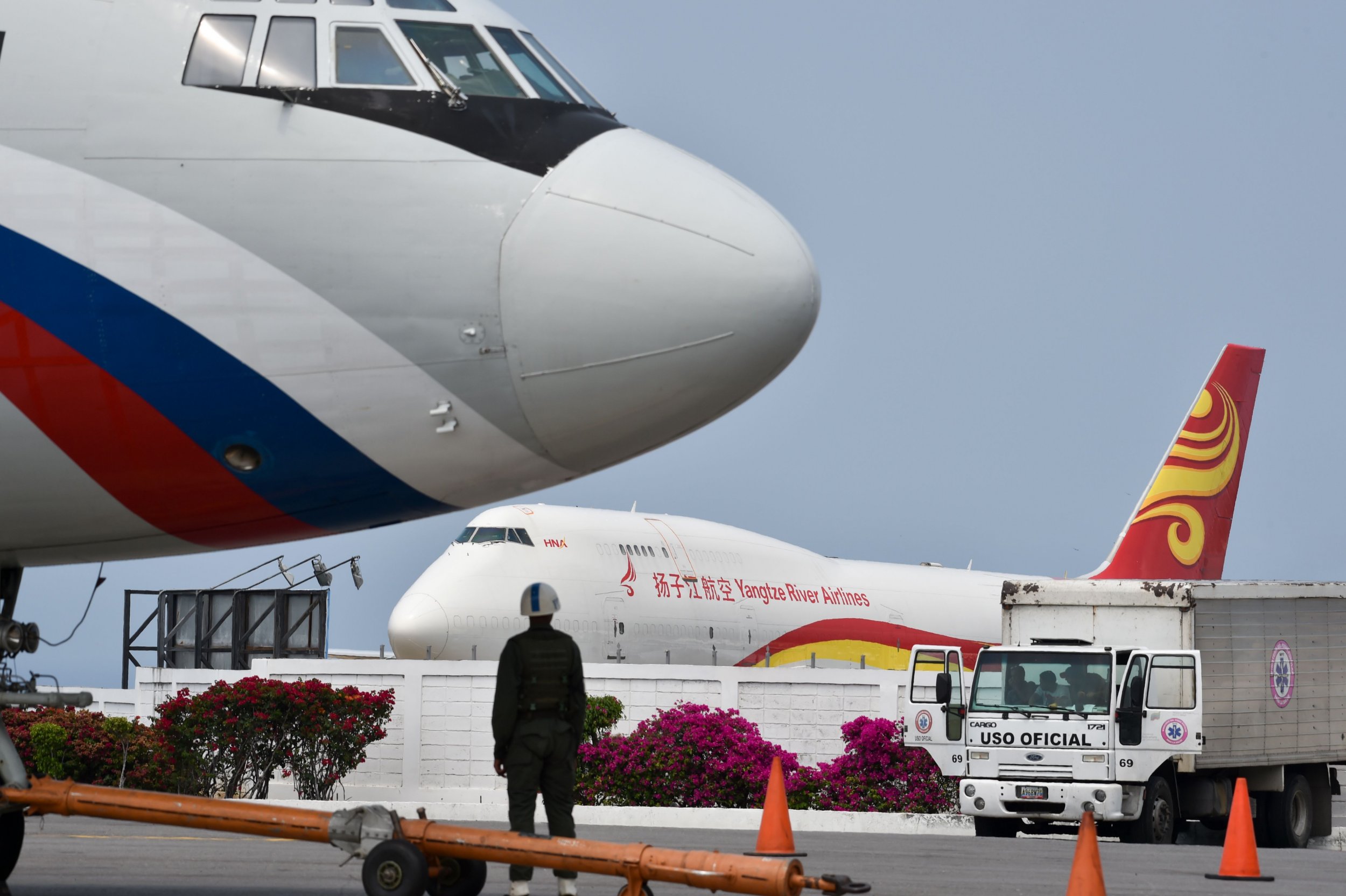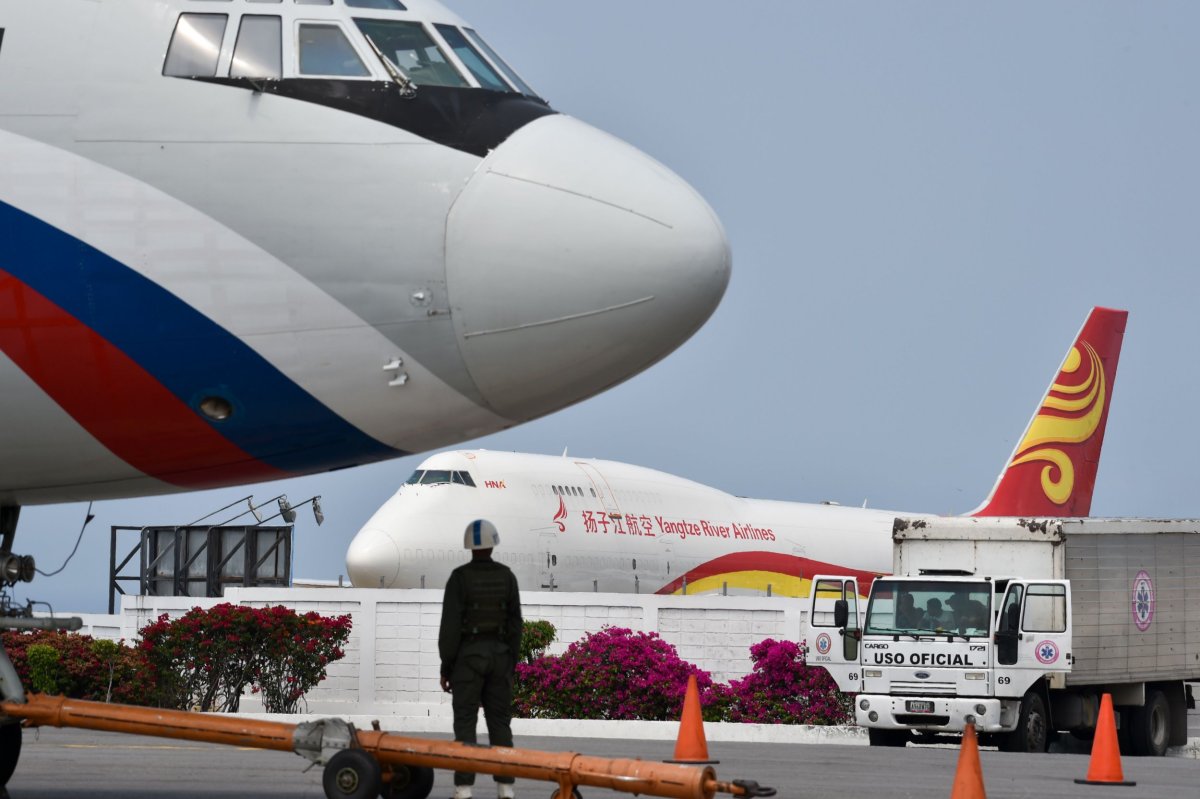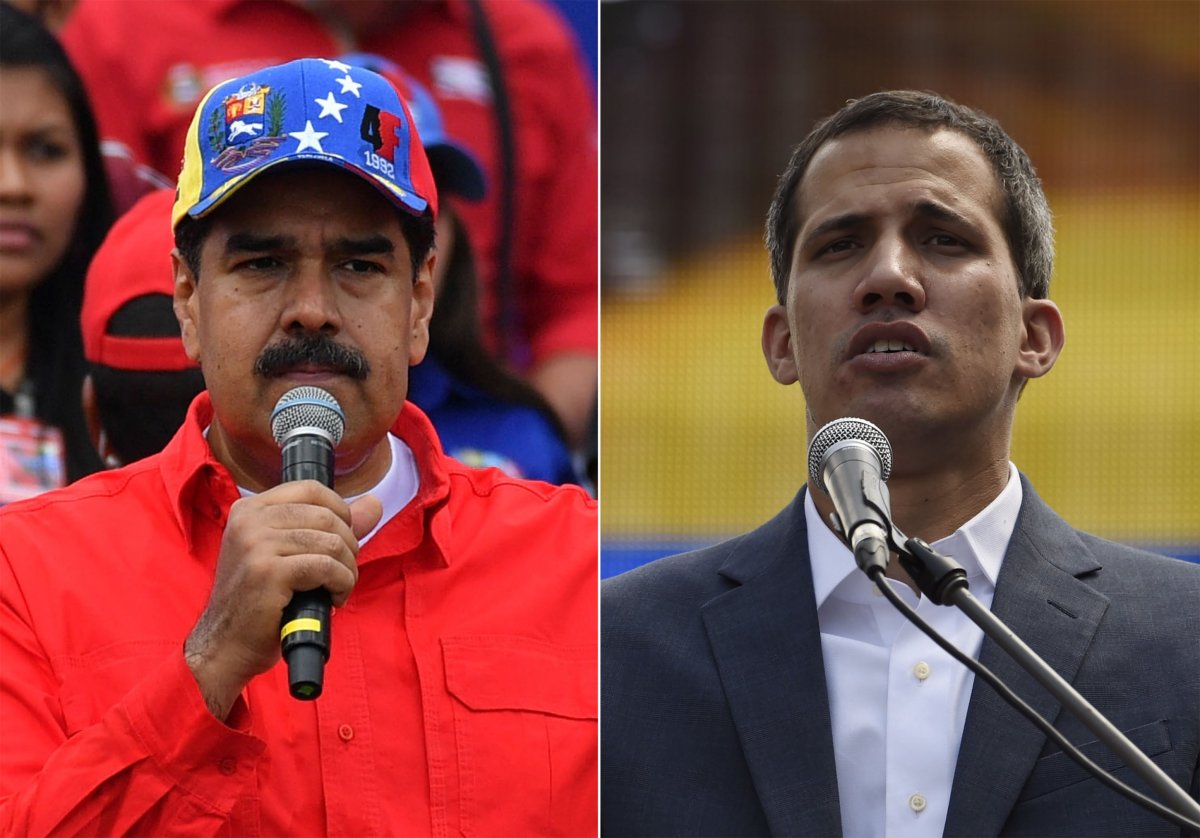
Iran has followed Russia's lead in shoring up ties with Venezuela at a time when the United States sought to oust the embattled Latin American country's socialist government, but China's presence there may be the Pentagon's gravest concern.
Venezuelan Foreign Minister Jorge Arreaza defiantly told a press conference Monday that his country "will continue military-technical cooperation with Russia" after Moscow's decision last month to send aircraft and up to 100 personnel to Caracas rattled Washington. Arreaza has just returned from the Middle East, securing support for Venezuelan President Nicolás Maduro from Syria and Lebanon, and he told reporters that a delegation of Iranian officials also arrived in Caracas on Monday via Tehran's Mahan Air.
The privately owned commercial airline was sanctioned in 2011 after the U.S. accused it of "providing financial, material and technological support" to Iran's Revolutionary Guards, the elite military group officially designated a terrorist organization by President Donald Trump on Monday. Amid these developments, however, U.S. Southern Command chief Navy Admiral Craig Faller said he was more concerned about another actor opposing regime change efforts in Venezuela—China.
"I think the biggest threat to democracy and the way of life around the world is the trend that we see in China," Faller told Foreign Policy on Monday, later adding that "there is no other actor in Latin America, with the possible exception of the Cubans, who as much controls the fate of Nicolás Maduro and his henchman as China does."

Washington has grown increasingly suspicious of Beijing's actions abroad in recent years, especially its military moves in the South China Sea and its pursuit of lucrative investment deals stretching from Asia, through Africa, Europe and as far West as Latin America. Vice President Mike Pence suggested that the country presented a greater threat to the U.S.-led NATO Western military alliance than Russia at a gathering earlier this week.
Though Chinese Foreign Ministry spokesperson Geng Shuang denied reports that Beijing had sent up to 120 troops to Venezuela, the U.S.' top economic rival has reportedly sold more than $615 million worth of weapons to the leftist South American nation. China has also offered to help rebuild the country's damaged electric grid, whose failures Maduro and his international allies have blamed on enemy action.
Competing narratives over responsibility for the power outages in Venezuela mirrored the greater political dispute between Maduro and parliament speaker Juan Guaidó, an opposition leader who declared himself acting president in January with the support of the U.S. and its regional allies. Guaidó and his backers have accused Maduro of illicitly holding on to power and of mismanaging an economy beset by historic hyperinflation that has been exacerbated by U.S. sanctions designed to force the leader out.
While the U.S. has been joined by much of Latin America, as well as Western allies abroad, in backing Guaidó, Maduro was still recognized by China, Iran, Russia, Turkey and other international powers, as well as fellow leftist-led Bolivia, Cuba, El Salvador, Mexico, Nicaragua and Uruguay within the region. Moscow and Beijing have warned Washington against intervention against Maduro and have sent international aid after a previous convoy arranged by the Venezuelan leader's opponents was dismissed as a conspiracy to unseat him.
The presence of Russian, Chinese and Iranian planes in Caracas has outraged the U.S., which already has troops based in neighboring Colombia and in other countries across a region long targeted by Washington's efforts to halt the spread of leftist ideologies. Trump said last month he was considering adding Venezuela's other major neighbor, Brazil, to NATO following the election of far-right President Jair Bolsonaro.

Bolsonaro told the local Jovem Pan radio station on Monday that he was working alongside Trump to foster dissent among the Venezuelan armed forces, which have remained loyal to Maduro. He said Brazil "cannot allow Venezuela to become a new Cuba or North Korea," as translated by Reuters, suggesting he may support U.S. military action against Venezuela, though he warned it would likely lead to a protracted guerrilla war.
Bolsonaro previously considered requesting a U.S. military base in Brazil after Russia sent a prior delegation of military personnel, as well as nuclear-capable bombers, to Venezuela in December. That same month, Iran announced it was planning to send a naval delegation in a show of solidarity with Maduro.
As the grip of Maduro's government showed little signs of slipping, the State Department planned to enhance its own coalition in the coming week. U.S. special representative on Venezuela Elliott Abrams—among those believed to be involved in a 2002 coup attempt against Maduro's predecessor, Hugo Chávez—was scheduled to meet with Portuguese and Spanish officials in Lisbon and Madrid from Tuesday through Thursday, while Secretary of State Mike Pompeo set out for Chile, Paraguay, Peru and Colombia from Thursday through Monday.
The State Department said he "will celebrate and reinforce shared commitments to democracy and human rights, highlight increased opportunities for prosperity and security for our citizens, and rally support for democracy in Venezuela."
Uncommon Knowledge
Newsweek is committed to challenging conventional wisdom and finding connections in the search for common ground.
Newsweek is committed to challenging conventional wisdom and finding connections in the search for common ground.
About the writer
Based in his hometown of Staten Island, New York City, Tom O'Connor is an award-winning Senior Writer of Foreign Policy ... Read more
To read how Newsweek uses AI as a newsroom tool, Click here.








